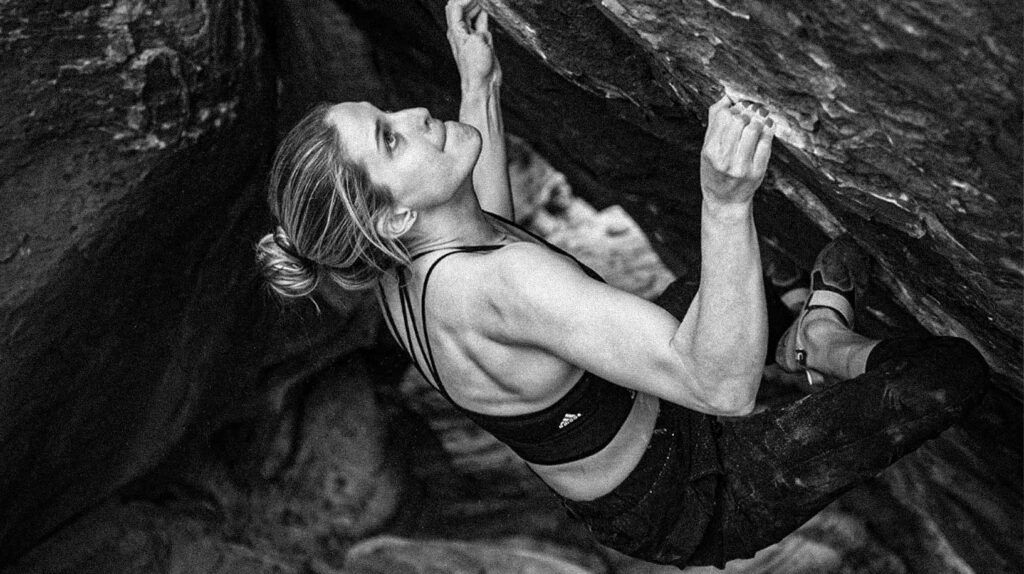Warning: This text deals with some eating disorders, we prefer to warn you.
STRENGHT OR LIGHTNESS ?
The struggle against gravity is quite unfair: more often than not, gravity wins. It would be tempting to think that being lighter would inevitably lead to better results. After all, the history of climbing is full of climbers with a slim silhouette who seem to frolic on rock or plastic.
But in recent years, coaches and athletes have made a different bet: to focus on strength above all, and worry less about weight, for several reasons.
Firstly: well-fed muscles and body, like a car with a full tank, can produce much better results. And strength can be trained constantly – at any age! You can try to lose weight, but eventually, there is an objective limit that cannot be exceeded. However, gaining strength can be much more sustainable.
Secondly: recovery is more effective with more nutrients available. Hello carbohydrates!
Not to mention that depriving your body of calories – in small or large quantities – can cause stress, both mental and physical, which can affect your performance and quality of life.
And another good argument: muscles will allow you to add years of quality to your life.
PRIORITIZING STRENGTH
Whether climbing is your life or a hobby, it is still important to maintain a healthy relationship with food – because you need to nourish yourself far beyond the time you spend at the gym or on the wall.
An influencer has conducted an interesting experiment, which can be seen here. To summarize, Emil Abrahamsson talks about his journey with changing weight over the years, specifically what he learned last year going from 76 kg (167 lbs) to 85 kg (187 lbs) and climbing harder than ever.

Emile Abrahamsson training on the campus board. ©Emile Abrahamsson
Obviously, it should be taken with a grain of salt: it’s an experienced climber who tried something, that doesn’t mean everyone would get the same results…
Nevertheless, it’s worth dwelling on this notion: weight, in climbing, is not everything. There’s technique, strength, flexibility, mental aspect: all these aspects can be worked on and can help you progress.
Because climbing has come a long way: a sport where anorexia has often been glorified and even encouraged, because climbers favored eating less to try to climb better. And while there were short-term results, in the long run, it’s less true.
Several female climbers and even male climbers have testified to this in recent years. Whether it’s not having your period because you’re underfed for women or stress fractures for men, cutting calories has consequences.
And there are examples showing that it’s entirely possible to perform without dieting or obsessing over weight. Canadian climber Allison Vest has crushed problems up to V14, won three national titles, and has always openly refused to reduce her weight for climbing.

Allison Vest crushing a sharp V12 in Red Rocks.
Among men, Kai Lightner, after facing his eating disorders, recently climbed a 5.15a, without trying to be as light as possible.
Even on the competition side, the International Federation of Sport Climbing, the IFSC, has implemented rules to combat eating disorders prevalent among athletes. Rules that are certainly criticized, but it’s a sign that the relationship between food and climbing is taken seriously.
So what should we remember? Eating only celery in the hope of being lighter is not a solution. Getting stronger always yields results.
Need help? Bloc Shop has a team of coaches who can assist you.


